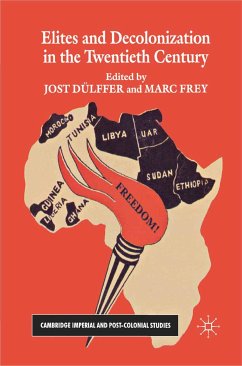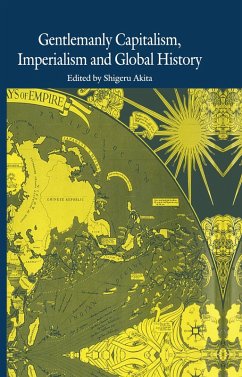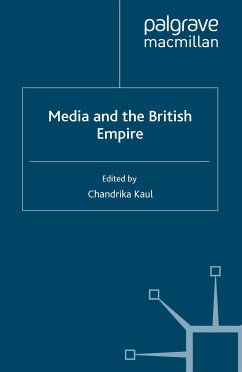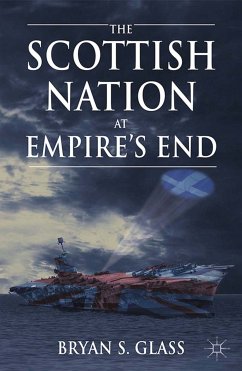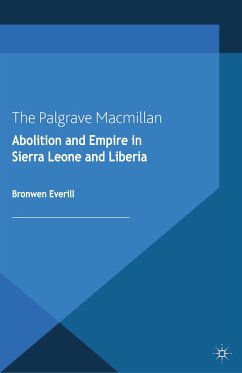

PAYBACK Punkte
12 °P sammeln!






In this fresh and controversial account of Britain's end of empire, Grob-Fitzgibbon reveals that the British government developed a successful strategy of decolonization following the Second World War based on devolving power to indigenous peoples within the Commonwealth.
Dieser Download kann aus rechtlichen Gründen nur mit Rechnungsadresse in A, B, BG, CY, CZ, D, DK, EW, E, FIN, F, GR, HR, H, IRL, I, LT, L, LR, M, NL, PL, P, R, S, SLO, SK ausgeliefert werden.
- Geräte: PC
- ohne Kopierschutz
- eBook Hilfe
- Größe: 23.06MB
- Text-to-Speech
- E-Mail des Verlags für Barrierefreiheitsfragen: accessibilitysupport@springernature.com
- Keine Einschränkung der Vorlesefunktionen, außer bei spezifischen Ausnahmen
- Bekannt für fehlende wesentliche Barrierefreiheitsmerkmale
BENJAMIN GROB-FITZGIBBON is Assistant Professor of History, Cleveland C. Burton Professor of International Programs, and Associate Director of the International Relations Program at the University of Arkansas, USA. Born in the north of England in 1979, he received his doctorate from Duke University in 2006. His first book, The Irish Experience during the Second World War, was published in 2004. His second book, Turning Points of the Irish Revolution, in 2007. He has previously taught at Duke University and North Carolina State University.
Produktdetails
- Verlag: Palgrave Macmillan UK
- Seitenzahl: 478
- Erscheinungstermin: 9. November 2016
- Englisch
- ISBN-13: 9780230300385
- Artikelnr.: 39403421
'Grob-Fitzgibbon challenges the popular view that Britain shed its empire politely, like a tea party at the vicarage in an Agatha Christie mystery. He makes it clear that the reality was very different. Withdrawal from empire was difficult, dangerous and dirty and the politicians, diplomats, soldiers and policemen who brought empire to an end did so in a way not brought out as powerfully and persuasively before. For anyone worried about how things might end in Iraq or Afghanistan, Grob-Fitzgibbon's excellent, dispassionate, forensic analysis will make uncomfortable but illuminating reading.'
- Colonel Alex Alderson, MBE, Director of the United Kingdom Counterinsurgency Centre
'Imperial Endgame is a controversial and
- Colonel Alex Alderson, MBE, Director of the United Kingdom Counterinsurgency Centre
'Imperial Endgame is a controversial and
Mehr anzeigen
important book. Benjamin Grob-Fitzgibbon has no time for conventional pieties. Junking the tired story of disarray and humiliation, he shows how Britain ruthlessly disposed of the Empire on its own unsentimental terms. This strategy often involved dirty tactics and dirty wars but the objective was clear: to keep newly-independent states within Britain's sphere of influence.It's abold re-telling of the decolonisation story, pulledoff with great style and panache.'
- Richard Aldous, author of The Lion and the Unicorn, and Eugene Meyer Professor of British History and Literature at Bard College, New York, USA
'The end of the British Empire was characterized not only by relatively smooth transitions to independence but also by the winning of independence by violent means of insurgency. Imperial Endgame is an excellent history of the British counter-insurgency campaigns marking the end of colonial rule, above all in Palestine, Malaya, Kenya, Cyprus, and Aden. '
- Wm. Roger Louis, University of Texas at Austin, USA
'Comprehensive and well-handled study' - English Historical Review
'...a very good, detailed account from a high politics and strategy viewpoint...One of the most valuable aspects of this book is its retailing of the atrocious methods Britain often resorted to in order to attempt to keep 'order' in the face of all these postwar challenges to its colonial rule.' - Bernard Porter, History Today
'The work is very accessible, combining diplomatic history (much of it ased on primary documents) with accounts of how the situation on the ground often caught the 'imperial masters' off-guard.' - Roger Mac Ginty, University of Manchester, The Round Table
'This is a very welcome study of an important, and topical, dimension to the last phase of British colonial rule...In recounting the methods employed by Britain to maintain 'order', the author presents a much-needed counterweight to the elegantly phrased, and intentionally reassuring opinions so often encountered in the recorded views of contemporary policy-makers. That he does this by considering so diverse a range of case studies only serves to make his account more compelling. In short, this book offers a timely and valuable corrective to any lingering historiographical complacency on British disengagement from empire. As such, it promises to enrich discussion of a central theme in contemporary British (and world) history, and deserves to have a wide readership.
- Larry Butler, H-Soz-u-Kult, H-Net Reviews. October, 2013
- Richard Aldous, author of The Lion and the Unicorn, and Eugene Meyer Professor of British History and Literature at Bard College, New York, USA
'The end of the British Empire was characterized not only by relatively smooth transitions to independence but also by the winning of independence by violent means of insurgency. Imperial Endgame is an excellent history of the British counter-insurgency campaigns marking the end of colonial rule, above all in Palestine, Malaya, Kenya, Cyprus, and Aden. '
- Wm. Roger Louis, University of Texas at Austin, USA
'Comprehensive and well-handled study' - English Historical Review
'...a very good, detailed account from a high politics and strategy viewpoint...One of the most valuable aspects of this book is its retailing of the atrocious methods Britain often resorted to in order to attempt to keep 'order' in the face of all these postwar challenges to its colonial rule.' - Bernard Porter, History Today
'The work is very accessible, combining diplomatic history (much of it ased on primary documents) with accounts of how the situation on the ground often caught the 'imperial masters' off-guard.' - Roger Mac Ginty, University of Manchester, The Round Table
'This is a very welcome study of an important, and topical, dimension to the last phase of British colonial rule...In recounting the methods employed by Britain to maintain 'order', the author presents a much-needed counterweight to the elegantly phrased, and intentionally reassuring opinions so often encountered in the recorded views of contemporary policy-makers. That he does this by considering so diverse a range of case studies only serves to make his account more compelling. In short, this book offers a timely and valuable corrective to any lingering historiographical complacency on British disengagement from empire. As such, it promises to enrich discussion of a central theme in contemporary British (and world) history, and deserves to have a wide readership.
- Larry Butler, H-Soz-u-Kult, H-Net Reviews. October, 2013
Schließen
Für dieses Produkt wurde noch keine Bewertung abgegeben. Wir würden uns sehr freuen, wenn du die erste Bewertung schreibst!
Eine Bewertung schreiben
Eine Bewertung schreiben
Andere Kunden interessierten sich für


